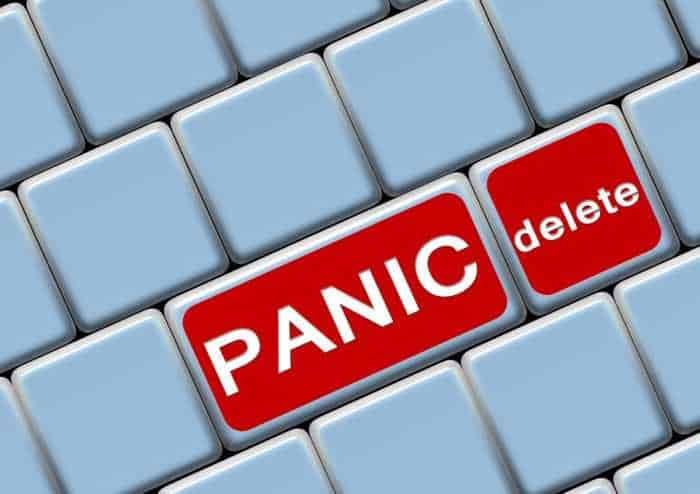Do you believe that the market will crash or you know? There is a big difference between what you believe and what you know.
2 min read

Market crash or market not crash. If you truly believe the market is going to crash, there are a lot of sorts of places where you can put your money.
You could buy gold or real estate or you could take an aggressive approach. And try to capitalize on stocks’ by loading up on investments designed to rise when the market falls or you could move it all into cash.
But be honest.
Do you really believe in such a scenario? Market, crash!
There is a big difference between what you believe and what you know. Do you know that the market crash is close? When? Tomorrow? Next week?
On the other hand, I can understand that someone can recognize market crash in this uproaring and uncertain times.
We all remember, OK most of us, March 2009 and market crash.
Everyone was extremely agitated about the falls in the stock market. And people were feared that the stock market might continue falling. Many people wanted to sell the holdings in his investment portfolio, move the proceeds to cash and sit out the market turbulence.
And you know that emotions have an important influence on investor behavior and how do they make decisions.
This can often lead to investors failing to capture the returns that are there for the taking. And as a result, suffering poor financial outcomes and according to some research, we are twice as sensitive to financial losses as we are to making gains.
But is it so today?
Is this the same situation? Will the market crash? Or it may not be. Think about it.
The ones who like to predict disasters pointed to any numbers of reasons why they believe the market is headed to a crash.
 You have the choice to pick. From the growth-slowdown scare in China that sent stock prices down 12% in the summer of 2015; Brexit and the election of Donald Trump. Anything is supposed to be catalysts for a market rout. Obviously, some prediction of the market’s downfall is going to turn out to be right. But after the turnaround began in March 2009, it’s not as if investors knew the bear had run its course.
You have the choice to pick. From the growth-slowdown scare in China that sent stock prices down 12% in the summer of 2015; Brexit and the election of Donald Trump. Anything is supposed to be catalysts for a market rout. Obviously, some prediction of the market’s downfall is going to turn out to be right. But after the turnaround began in March 2009, it’s not as if investors knew the bear had run its course.
While we believe we know where stocks are headed, we actually don’t.
The same goes for market pros who may speculate and prognosticate (sometimes even provide valuable insights into what’s driving the market).
But they don’t really know what the financial markets are going to do in the near term. They don’t know will the market crash.
I don’t think it makes sense to shift your money around in an attempt to outguess the markets, whether that means going to cash to avoid a setback or moving to an investment you think will thrive while the market drop.
That doesn’t mean you should sit back and do nothing.
You can do the following things:
The most important thing you want to confirm is your asset allocation or the percentage of your holdings that are invested in stocks.
That will determine how your portfolio holds up if the market takes a major dive.
Take this time to go over your holdings and tally up how much you have in stocks and how much in bonds and you’ll see how your portfolio is divided up between stocks, bonds, and cash.
Second, figure out where your asset allocation should be.
I’m sure you want a blend of stocks and bonds that will generate high enough returns so you can reach your financial goals but at the same time isn’t so risky that you’ll sell stocks in a panic during a major stock rout.
Think back about how you handled past downturns or how you reacted when stocks began to dip and dive. You want to come as close as you can to a blend of stocks and bonds that you’ll be okay holding in a variety of market conditions. And then make all necessary adjustments.
Then you feel you’ve got a portfolio that will provide sufficient gains during rising markets and enough protection during routes.
You’ll be able to hang on until the eventual recovery, regardless of what’s going on in the market. The idea is to make sure your portfolio doesn’t become too aggressive during market upswings. Or too conservative when stocks take a hit.
Making dramatic changes such as fleeing to cash or switching to different investments altogether, may be challenging at times when every news story or TV show you see seems to suggest that the market is on the edge of Armageddon.
But you don’t want to let fear and emotions dictate your investing strategy and lead you to make impulsive decisions.
Can I guarantee that this approach can provide you with the best results during the long – term? Of course not.
This is just another ”what would be if it were” scenario.
Risk Disclosure (read carefully!)




Leave a Reply